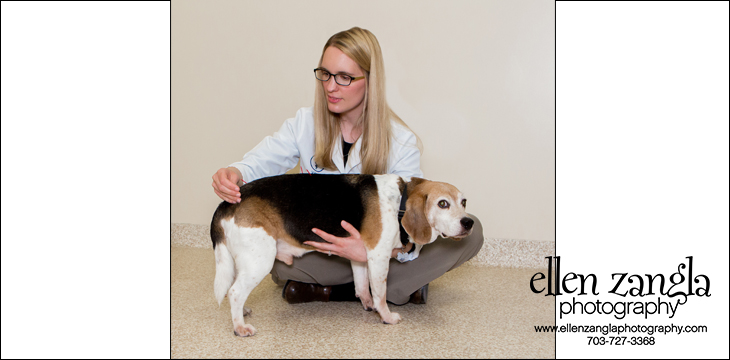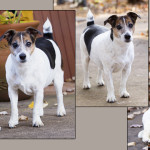How Acupuncture Can Help Your Pet
Interview with Dr. Adrianne Doering, a veterinarian and Certified Veterinary Acupuncturist at Leesburg Veterinary Hospital.
Q. Can both cats and dogs receive acupuncture?
Yes, both cats and dogs can receive acupuncture. Many people are surprised to hear that cats tolerate acupuncture, but they really do very well with it.
Q. What is acupuncture most commonly used for?
Most of my cases are older pets with age-related pain. With dogs, this is often arthritis of the hips and knees; with cats, it is usually forelimb pain and bladder pain. I often treat neck and back pain as well with good success.
There are many other uses for acupuncture, we just don’t see those cases as often. For example, I once treated a cat with asthma. The treatments really seemed to help relax the chest muscles and allow her to breathe more easily.
Q. How does acupuncture work?
We don’t completely understand all the ways it works, but we do know that by placing the needles near significant nerves and blood vessels, we cause chemical reactions in the body, such as an increase in blood flow to damaged tissues and a release of chemicals that dampen the pain response.
Q. How long does treatment last?
Typical sessions last from 15-30 minutes, from placing the needles to removing them. Both dogs and cats can walk around while the needles are in, although cats and small dogs tend to do well if they’re placed in a laundry basket as they will just lie in it and relax. Pets with acute pain start off receiving treatment twice a week for 2-3 weeks. For chronic issues, I start by treating them every 2 weeks and then often decrease treatment to once a month.
Q. What do pets act like after treatment and how long does it take to see improvements?
After treatment, pets are often tired for two reasons: 1) They are at the vet’s office for 30 minutes, which can be a little stressful and tiring, and 2) acupuncture causes a release of endorphins, which also makes them tired.
We hope to see improvements within 48 hours, but they may be subtler than expected. For example, a 12-year-old dog won’t start acting like a puppy again, but we hope to see him doing the activities he stopped doing, such as going up the stairs without being coaxed, wagging his tail more, wanting to do an extra lap in the yard, etc.. We want them to do what they used to do before they started feeling poorly.
To learn more or to schedule an appointment, you can contact Dr. Doering at Leesburg Veterinary Hospital, 703-777-3313 or through e-mail at Adrianne.doering@gmail.com. You also can visit the International Veterinary Acupuncture Society at www.ivas.org.



